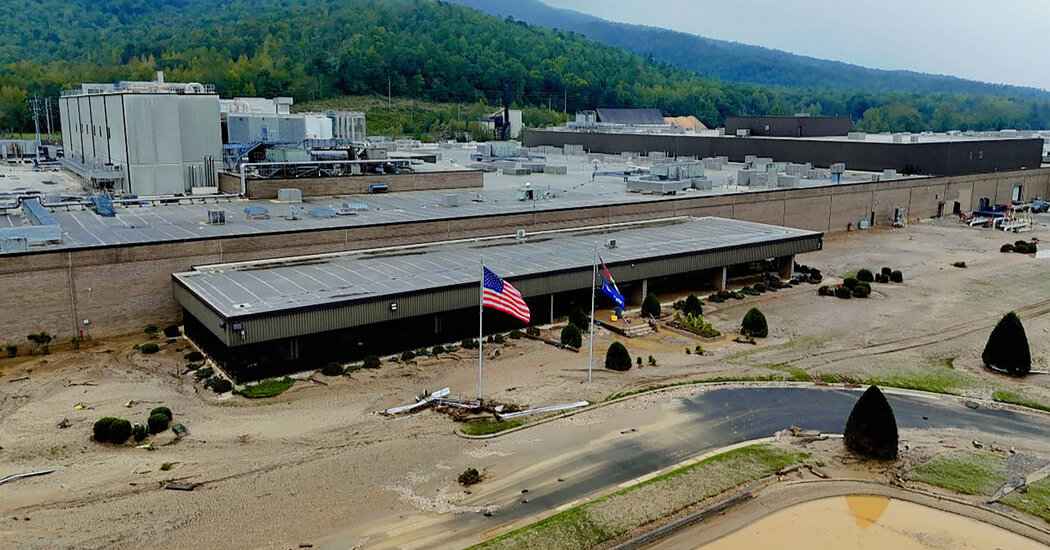Officials are looking to foreign sources to ease shortages of IV bags caused by Hurricane Helene as hospitals begin rationing fluids to protect the sickest patients.
U.S. officials are racing to approve airlifts of IV fluids from overseas manufacturing plants to ease shortages caused by Hurricane Helene that have forced hospitals to begin postponing surgeries as a way to ration supplies for the most fragile patients.
The current shortage occurred when flooding coursed through western North Carolina and damaged a Baxter plant, which is now closed for cleaning. The plant makes about 60 percent of the United States’ supply of fluids used in IVs, for in-home dialysis and for people who rely on IV nutrition. They include premature babies in intensive care and patients who rely on tube feeding to survive.
The situation could become even more dire now that Hurricane Milton is bearing down on Florida. On Tuesday, workers at B. Braun, makers of a fourth of the nation’s IV fluids, loaded trucks at the company’s plant in Daytona Beach with the medical bags and drove them north through the night to what they hoped would be a safer location.
The Baxter plant, in Marion, N.C., and the B. Braun site in Daytona Beach manufacture about 85 percent of the nation’s supply of IV fluids. Experts on shortages have long pointed out the risk of such over-concentration of critical supplies, citing exposure to disasters like those now at hand. Even before the latest storm, supplies were tight and reflected a longstanding problem of how few companies are willing to produce crucial but low-cost and low-profit supplies.
A spokeswoman for the B. Braun site in Florida said that the company was working with federal officials and that the plant’s staff would be off work Wednesday and planned to return on Friday once the hurricane had moved on.
The supply crunch from flooding at the Baxter plant has led the company to limit hospital customers to 40 to 60 percent of their typical supplies this week. The American Hospital Association wrote to President Biden on Monday, seeking assistance to alleviate concerns about “substantial shortages of these lifesaving and life-supporting products.”
